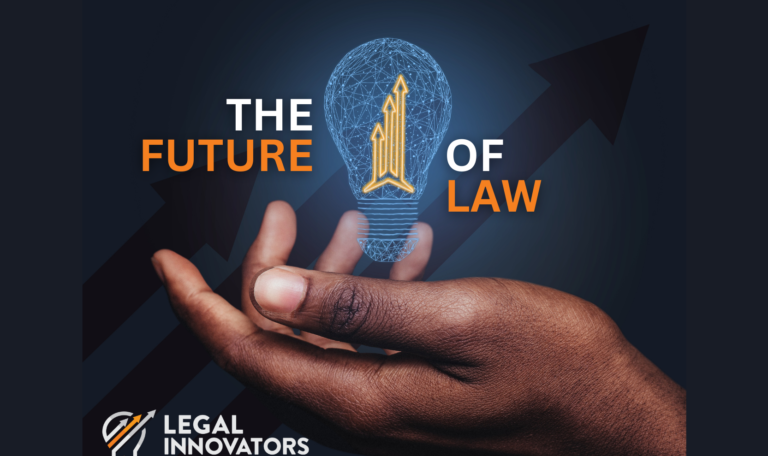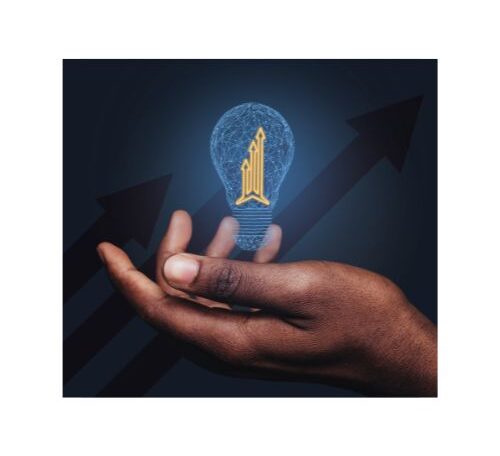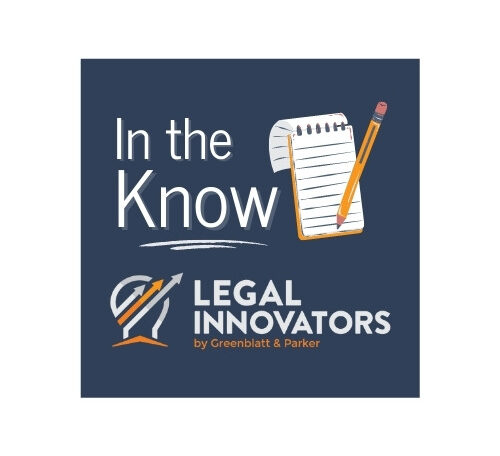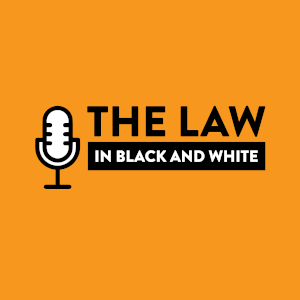Happy Pride Month! In celebration of our LGBTQ+ colleagues this month, Legal Innovators’ CEO, Bryan Parker, had a conversation with one of our attorneys, Wesley Gonzales, on why Pride Month is important, what Pride means to him, and what firms can do to better support their LGBTQ+ attorneys. Watch the full video, or read the transcript below!
Video Transcript:
Bryan: Happy Pride Month! I’m Bryan Parker, CEO and Co-Founder of Legal Innovators. Today, we are happy to be here, celebrating Pride Month and celebrating our LGBTQ+ colleagues. While representation of LGBTQ+ lawyers has increased in recent years, the legal community still has a long way to go in creating true parity and inclusion and belonging across the field. Today, we briefly highlight why Pride Month is important, and what we, as allies in the legal community, can do to support and create space for our LGBTQ+ colleagues. I have with me today Wesley Gonzales, one of our star lawyers from Legal Innovators, who is placed with the Los Angeles office of Locke Lord. Wesley, can I ask you to introduce yourself? [1:00]
Wesley: Hi, my name is Wesley Gonzales. I go by he/him pronouns, and I am a young associate in the Los Angeles office at Locke Lord, representing Legal Innovators. And I am a young attorney, excited to be here.
Bryan: Alright! Wesley was gracious enough to join me today; we usually celebrate these months, but we thought being a little more interactive might be fun for both us and the community. So why don’t we share? Wesley, probably a question that’s not going to surprise you: Why is Pride Month important?
Wesley: So, for me, I view visibility as the most important part of advocacy, and I don’t mean that just as an attorney–though I do mean it as an attorney–I mean that as an individual. It’s something that we can all engage in. When I think about messaging to the back of the house, or in this case, parts of America that are less seen, or where people feel less represented, Pride Month is a way to show everyone–it’s a national campaign–that you have a place here, that you belong here. If you’re struggling with your identity, or maybe you’re aware of your identity but you don’t feel comfortable sharing that, Pride Month is a hugely fantastic way to get more people to feel safe and open expressing who they are, and I love that. [2:12]
Bryan: Thank you, I think that’s a great overview for the members of our legal community and whoever else out there may be watching. If you don’t mind, I’d like to make a little bit more personal to you. I think you’ve helped us understand—though I hope many and most people understand the importance of Pride Month—generally, why is it important to you? What specifically does Pride Month mean for you? [2:40]
Wesley: Well, I’m going to take it back to my initial answer but expand on that. I have never walked professionally into a room where someone looks like me; I’m typically the first person—and I don’t mean to say I’ve never encountered another queer attorney or queer-identifying attorney—but I do mean that at the intersection of being both Black and queer, and sometimes kind of loudly queer, I don’t really see that. So for me, Pride Month is a way to kick open doors for someone coming behind me. And so, if at any moment that I’ve ever felt, maybe, excluded or othered just by nature of who I am, I don’t want anybody else to feel that. It’s very personal to me, and so I do my best to make sure that I’m creating a space for myself so that, if I were to ever leave, there is space for someone else, others, to come in. [3:35]
Bryan: Yeah, and now, we’re not too far off of Black History Month, and again you talk about people being able to see, you know, when we walk in as Black men, right? And I frequently have a conversation to say that the pipeline—meaning, coming in—is only one half of diversity. If you don’t make place—whether that’s a Black person, differently-enabled, Latinx, or LGBTQ+, like we’re talking about here in Pride Month—they won’t be retained. And so the idea of place, and someone being their authentic self, is extremely important in this retention calculation. I wonder if you could talk about what place means for you, and how allies and employers can lean in and help create this place so that all individuals, wherever they are coming from, can feel free to be their true and authentic selves at work? [4:40]
Wesley: That’s a great question, and I’m going to tripartite my answer as best I can. I think that place has a twofold component to it. On the one hand, I think ‘place’ is the very basic assumption of what place means for everybody, meaning you have somewhere to come in and work, and feel comfortable at work, to get the job done, to be able to do that free from any kind of harassment, or second-guessing, or any kind of discomfort just coming from existence. But I think—and this is more acute— ‘place’ has to mean a place where you are comfortable to succeed, where you feel like you can actually progress, and advance in the ways that your counterparts, who are maybe not othered in the ways that you are, are succeeding and advancing. So, I think that ‘place’ has to mean that you can come in to work and do your job—and it’s so much more than feeling accepted, but really feeling like you are a dynamic part of the team, or you can be, and you have that ability without question. And so from employers, from leadership, I think what we can ask of them, and expect from them, is genuineness, authentic-ness: not just statements saying that “you are safe here,” “we are celebrating pride,” anything like that, but rather, the ability to reinforce that statement directly and indirectly, in conversations with individual employees, in your larger marketing, and even in the ways in which you have casual conversations. The questions that you might feel comfortable asking a straight associate that maybe you wouldn’t feel comfortable asking someone who identifies as LGBTQ+—and this goes for every identity—asking those questions as a way of normalizing. Sometimes the most difficult questions have answers that are so simplistic and basic, and the result that you take away from the conversation is letting that person that may have felt othered feel like they are considered, and that they are taken genuinely and seriously. I think that goes a long way towards creating place for people. [6:50]
Bryan: Thank you, I think that’s super illuminating, and my next question—I’ll smile a little bit, because I don’t want to make this a commercial for Legal Innovators or Locke Lord, because I think both organizations are making strides, but nobody is perfect in this area, right, we are all learning—and I wonder, maybe, if you could talk about your experiences with both organizations, how they’ve let you—and I love what you said—how they’ve let you not only be your authentic self, but believe that you can succeed on the same order as anybody else? And, again, more than just talking about the organizations themselves, what are maybe lessons we can draw on, from these experiences, for the larger legal community? And what can they do for the other ‘Wesleys’ and other members of the LGBTQ+ community? [7:45]
Wesley: That is a fantastic question, and again, I also don’t want to make this necessarily a commercial, but I do have some nice things to say. I think that when it goes back to Legal Innovators, really for me, it starts at my interview process. Outright, I think that all facets of my identity were discussed in a celebratory manner, in a way that was never… they weren’t secondary, it wasn’t around-the-way talking, it was talking about strengths that made me an asset as an attorney, and things that I could bring into rooms that other people can’t bring in, and really engaging that. And this is just in my interview process, it’s not even once I had a job. And so, for me, that went so far into helping me feel like I was going to have a place here, and it allowed me to succeed once I started working, because it really gave me not just that comfortability, but it gave me that sense that people wanted me to thrive, that people wanted me to succeed, and that speaks volumes about Legal Innovators, and I hope that that is the experience for our other associates, and I’m sure it is. And I can’t speak loudly enough about how that initial valuation, that right-out-the-gate celebration of my identity, that’s something that you don’t see in hardly any other interview process. Of course, there’s always discussions about diversity and wanting that, but this was beyond that. So, if there is a lesson to be learned there, it is to lead with that. Once someone has got an interview, assumingly you’ve evaluated their materials, you know they are probably a standup candidate, so I don’t think there’s any harm in having these discussions at the door.
On my experience with Locke Lord, I think with Locke, they are money-where-your-mouth-is people. It is the everyday engagement that I receive from partners and other associates. We have weekly luncheons, and we have tons of touch-bases, we have lots of things that are geared towards the entire firm, and I feel so wholly part of this community, and I don’t feel as if I really have to protect myself in ways that I have had to. One such example—and I know that I’ve spoken about this before—is, in some ways, you know, I can be very queer if I want to be. So, it’s Pride Month, and I was hesitating over whether to get my nails painted or not. And I did get them painted, and I had an associate Happy Hour on Friday that all the associates went to, and it was just nothing but support, people were impressed, or they just loved it. It was immediately embracing, and that’s the kind of community I think that firms should always be building, one where it’s not just inclusion, it’s full immersion, it is respect. It’s not that you don’t discuss it, it’s the kind of respect that is so manifestly guaranteed, that you don’t have to bring it up. And I love that. [11:03]
Bryan: Wesley, thank you. And I think it’s important what Wesley has shared with us, and in some ways taught us all, it is about place, but it is about opening that door so people can shine and succeed. In the next week or so, Wesley has something, based on his work, that is going to be published. He is an associate shining in his own right, and we’re proud to have him in our community, we’re proud to celebrate him, but we are also proud to celebrate the LGBTQ+ community as a whole, and we hope—we know—our partners, like Locke Lord and others, join us. We hope that the whole legal community will join us in thinking about this idea of inclusivity, not only in June, in Pride Month, but every month, and how to we do our best to drive inclusion, to make people feel safe, respected, and as Wesley has reminded us, included. We hope that you’ll watch our socials for the rest of the month! We want to share things, we want to provide tips, and we want to celebrate others, like Wesley, one of the people of Legal Innovators—and I guess we have to share him with Locke Lord as well! But it will be a month of celebration and learning, and we hope that you’ll follow us, and you’ll lean in. And Wesley, thank you for being here to kick off Pride Month with us.
Wesley: Thank you Bryan, I really appreciate the opportunity.




